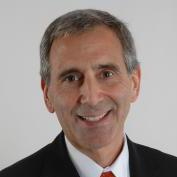Vasectomy in Lake Success, New York (NY)
For
men who are done having children or are sure they do not want children, a vasectomy
is a sterilization procedure that is nearly 100 percent effective. This makes
it an efficient form of birth control.
During
a vasectomy, the tubes that transport sperm from the testes and out the urethra
are cut and then tied or sealed in such a way that sperm is unable to enter the
ejaculate and result in fertilization of the female egg, thus making the man
sterile and unable to produce children.
This
outpatient procedure is brief (typically less than 30 minutes) and is often
performed by a urologist in a medical clinic or office setting. Hospital stay
is not necessary since a vasectomy is an uncomplicated technique that only entails
small incisions and routine surgical instruments—the patient is only required
to stay in the physician’s office for a short recovery period (usually less
than an hour) and is then sent home to rest.
With
a traditional vasectomy, a needle is used to numb the scrotum with a local
anesthetic. Two tiny incisions—one on each side of the scrotum—are then made
with a scalpel, as to allow the surgeon to pull each vas deferens tube to the
surface so that it can be isolated and separated from the scrotal tissue. Once
the tubes are secluded from the scrotum, they are sealed off using sutures or are
burned using electrical cautery.
While
there are several variations of this method, all end with the vas deferens
tubes being occluded or sealed off. The most common and advantageous include:
·
- No-needle vasectomy: The same techniques used in a traditional vasectomy to occlude the vas deferens are used here, but there is an exception. Instead of using a needle to inject anesthesia, a jet-injection tool is utilized. Known as a hypospray injector, the numbing instrument uses a small explosion of compressed air to force medication deep enough into the scrotal tissue to permit a nearly pain-free surgery.
- No-scalpel vasectomy: Rather than a scalpel, the surgeon uses a special clamp that has extremely sharp tips to pierce the skin of the scrotum. The vas is then pulled and separated from the scrotal sac without having to cut the blood vessels or nerves adjacent to the scrotum. Once isolated, the vas is sealed off by way of sutures or electrical cautery.
Throughout these procedures, other techniques may be used, such as fascial interposition, in which tissue is placed between the cut ends of the vas deferens as a means of providing a barrier. The tissue is stitched into place and helps prevent procedure failure. It is often combined with intraluminal cautery, where one or both sides of the vas are electrically burned closed.
A vasectomy should be considered permanent and the male undergoing the procedure should be sure that he is done having children or does not want children in the future. The procedure can be undone by way of a vasectomy reversal, but it is more complicated and success is not guaranteed.
About Bruce R. Gilbert, M.D., Ph.D.
Dr. Gilbert is the Director of Reproductive and Sexual Medicine at the Smith Institute for Urology of the North Shore LIJ Health System. He is also an Associate Clinical Professor of Urology and Reproductive Medicine at Cornell University Medical College. Dr. Gilbert has authored over 100 publications and is recognized as an expert in Male Fertility and Urologic Ultrasound. He is passionate about Urologic education and has organized training programs in microsurgery and urologic ultrasound as well as lectured locally, nationally and internationally. He is Chairman of the AUA's National Urologic Ultrasound Faculty and a member of the AUA's Urologic Diagnostic and Therapeutic Imaging Committee.
Dr. Gilbert completed his medical degree in 1983 at Cornell University Medical College and Urology Residency at the New York Hospital Cornell Medical Center. Prior to that he completed a Doctorate (Ph.D.) at the New York Medical College followed by postdoctoral work in Renal Physiology supported by the New York Heart Association in the Department of Physiology at Cornell University Medical College.
Dr. Gilbert's private practice for the past 22 years has specialized in male reproductive and sexual medicine and surgery including male prosthetic surgery. He is an experienced microsurgeon having performed over a 1000 microsurgical procedures including vasectomy reversals, microsurgical varicocele ligation and microsurgical testicular sperm retrieval. He is also was one of the first Urologists in the region to perform the No-Needle, No-Scalpel vasectomy. Dr. Gilbert is the Medical and Laboratory Director of New York Cryo, one of the few long term reproductive tissue banks for sperm, oocytes and embryos in the region. He has also gained national prominence for his use of Holistic approaches for the treatment of chronic Urologic problems.
Dr. Gilbert is certified by the American Board of Urology and the American Board of Medical Acupuncture. He is a fellow of both the American College of Surgeons and The American Academy of Medical Acupuncture. He serves as a reviewer for many Urological, Reproductive Medicine and Complementary Medicine Journals.
Special Interest
Microsurgical Vasectomy ReversalMicrosurgical Varicocele Ligation
Microsurgical Testicular sperm retrieval
Obstructive and Non-Obstructive Azoospermia
Ejaculatory Duct Obstruction
No-Scalpel, No-Needle Vasectomy
Retrograde Ejaculation
Delayed Ejaculation
Rapid Ejaculation
Erectile Dysfunction
Penile Curvature
Impaired Libido
Reproductive and Sexual Function in Spinal Cord Injured Men
Medical School
Cornell University Medical CollegeResidency
Urology Residency: New York Hospital Cornell Medical CenterFeatured Specialist for Vasectomy in Lake Success, NY
Call Now: (516) 342-7229 450 Lakeville Road.Suite M41Lake Success, NY 11040
Request Appointment
We encourage you to call if you have questions or wish to setup an appointment.
More Services from Bruce R. Gilbert, M.D., Ph.D.

